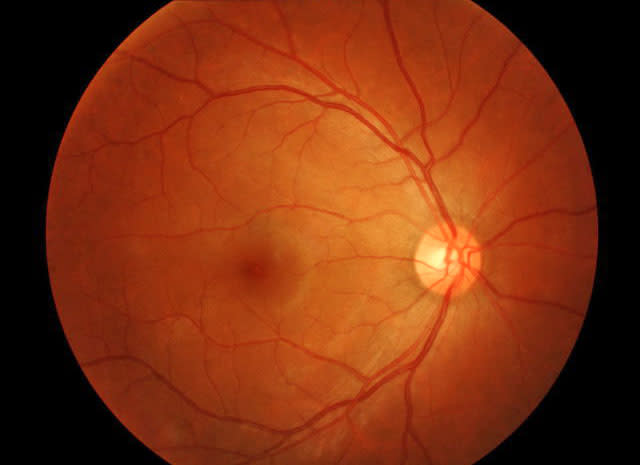Google DeepMind will detect eye diseases with AI
The company will use machine learning to analyze one million eye scans.

Google's DeepMind division is teaming up with another part of the UK's National Health Service (NHS) to see if it can improve patient care. The artificial intelligence company, acquired by Google in 2014, will use machine learning to analyze one million anonymised eye scans supplied by the Moorfields Eye Hospital. In addition, it'll be crunching anonymous information related to patient diagnosis, age and treatment. The hope is that such an approach can be used to examine scans with greater efficiency, or with a higher degree of accuracy, than traditional methods, thereby leading to earlier detection and intervention of eye diseases.
Moorfields Eye Hospital is one of the oldest and largest health centres for ophthalmic treatment, handling more than 600,000 patient visits each year. Staff conduct "many thousands" of optical coherence tomography (OCT) scans each week -- these are complex and can take time for healthcare professionals to analyze. If DeepMind's research is successful, this workflow could be accelerated and, as a result, ensure that many people retain their sight. Some conditions, such as diabetic retinopathy, can be prevented or severely limited provided they are detected early enough. "But that doesn't always happen," DeepMind explains.
The Google-owned team in London has collaborated with the NHS before. It's currently working with the Royal Free Hospital to develop an app that's capable of detecting acute kidney injury (AKI). The system, it's hoped, will immediately review blood test results, looking for signs of deterioration, and then send an alert should there be any problems to an appropriate member of staff. The project has been criticised, however, for the sheer volume of data -- 1.6 million patient records, to be exact -- that DeepMind now has access to. The company has since defended its cybersecurity capabilities and offered patients the chance to opt-out of the research.
In a blog post, DeepMind has stressed that the eye scans it'll be using have been collected by Moorfields over a long period of time. "This means it's not possible to identify any individual patients from the scans," the company claims. "They're also historic scans, meaning that while the results of our research may be used to improve future care, they won't affect the care any patient receives today." In addition, the company has submitted its research methodology for open peer review. "We'll also submit any results from this research to peer-reviewed journals, as is normal, so others in the medical community can analyze them."
DeepMind, if you need a reminder, developed the AlphaGo computer program that beat Go world champion Lee Sedol in March. (Another match is also on the cards.) If its algorithm is half as effective at analysing eye scans, medical professionals will be very happy indeed.

